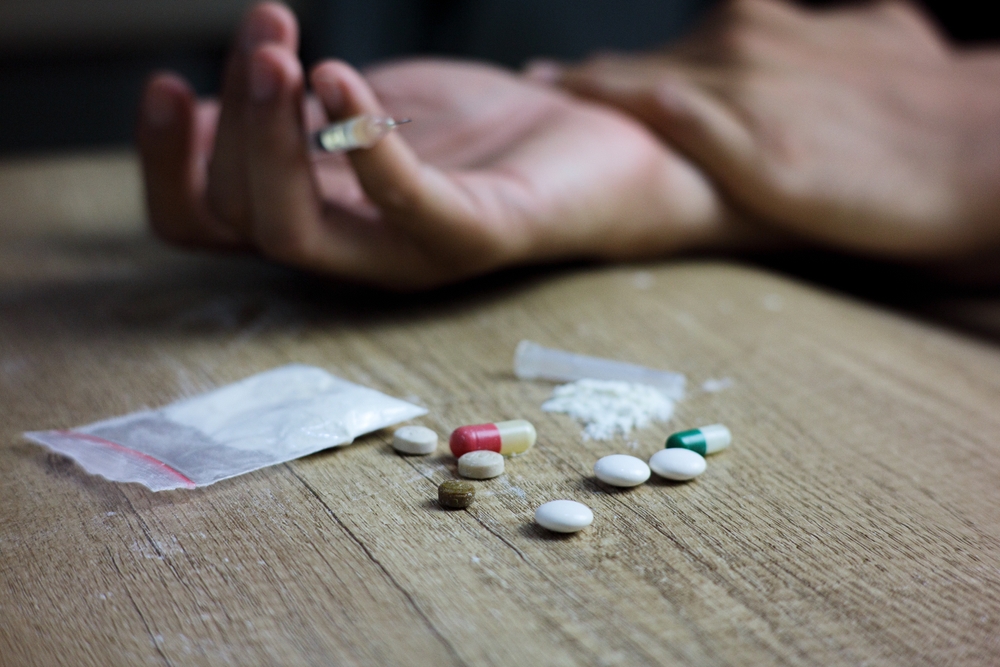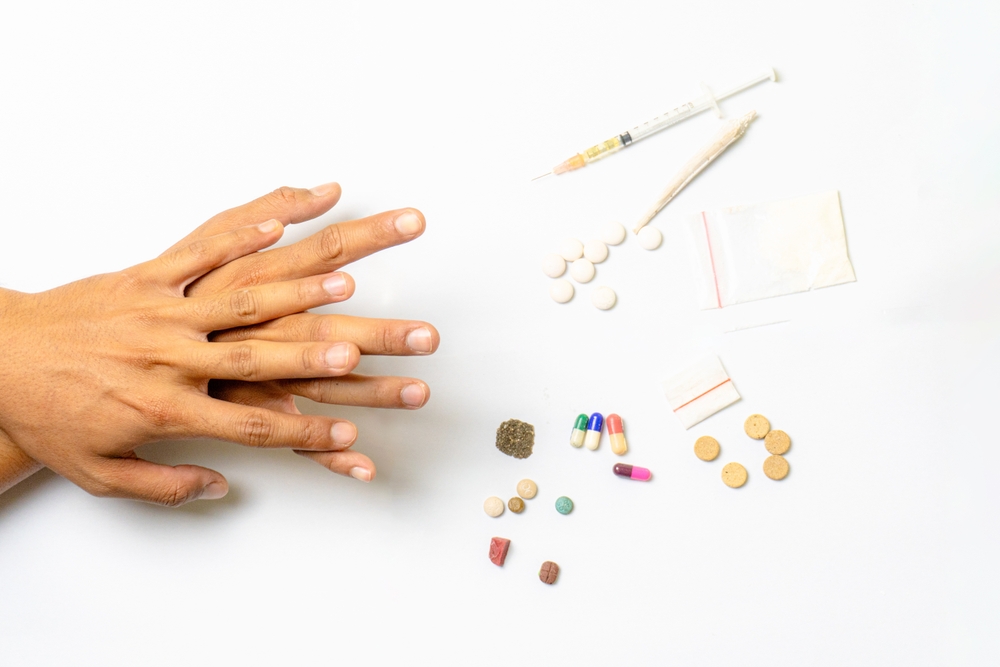Last Updated:
June 4th, 2025

Our genetics can influence every decision we make. For a person suffering from an addiction, there have undoubtedly been times when they’ve wondered, “Was this addiction passed on to me?” or “What chance did I stand when addiction is in my family?”
While addictions can run in families, it is important to remember that your fate is not decided. It is always possible to step toward a brighter future. We’ll look at some of the genetic influences on addiction and highlight steps you can take if addiction is prevalent in your family.
How much of an addiction is genetic?
When a healthcare expert mentions how addiction can “run in the family,” they are talking about whether the genes passed onto us from our parents make us more or less likely to develop an addiction.
Modern scientific advances have helped to illustrate how addictions function as a disease. Sadly, as diseases can be woven into a person’s DNA, so can many contributors to the disease of drug addiction. It is hard to pinpoint an exact number or structure of “addiction genes,” as environmental, social and familial factors are also at play. However, it is believed that between 40% and 60% of your susceptibility to developing an addiction is hereditary. Your genes can make you more prone to drinking and using tobacco or substances like cocaine, heroin and opioids.
That being said, we want you to know that even if you have lots of addictions in the family, that does not mean your destiny is set. Your genetics show that you might be more predisposed, but your future is yours to carve out.
Genetic vs environmental factors in addiction-forming
As we go through life, it is too simple to say that the experiences our parents have had will determine our future. The world around us influences our behaviour in a constellation of ways, opening doors to opportunities for success, failure and everything in between.
Yet, it is still hard to understate how significantly our upbringing and family life impact both the way we perceive the world and our position within it.
Separating environment and genetic factors may help us better understand the endless stream of influences that sway our decisions.
Environmental factors that may contribute to an addiction include:
Close physical proximity to a substance:
Simply put, we can’t have something that isn’t near us. Research illustrates how the availability and exposure to a substance in the household can be an indicator of future addiction. This is especially true for early teenagers, as most adolescents become open to experimenting with risk-taking behaviours. How many smokers do you know who grew up with plumes of tobacco smoke filling the corners of their living room as a child? While tobacco use creates a larger area that immediately influences others in the room, the principle is the same for a person’s chances of growing addicted to more discreet drugs that are near them.
Peer pressure from those around us
Another environmental factor that directly contributes to addiction forming is the peer pressure we feel, especially at a young age. As children, our families decide how almost all of our time is spent. Our parents get to know the friends’ parents, and they hope that the newly made friend won’t exert a “bad influence” on their child. In the teenage years, parents naturally have to “let go” of controlling their child, and in this time, friends can become a major force for taking risks, including drinking and drug use. In this way, parents’ leniency and ability to talk to their children about drugs could be the difference between their child trying an addictive substance too early or later in life.

Experiencing trauma
Another fundamental aspect of family influence on addiction is experiencing trauma. This can be multifaceted and can reach back through generations. Having both parents who went through severe trauma can make them more likely to turn to a substance as a way to cope, inevitably trickling down into the sphere of influence in their child’s life. Yet the true impact of traumatic experiences on addiction-forming is still a relatively new field of study. The original Kaiser Permanente 1995 study on Adverse Childhood Experiences (ACEs) opened the door to understanding how trauma leads to addiction. Their pivotal research showed how experiencing four or more ACEs had a 4 to 12-fold increased risk of developing alcohol or drug abuse problems.
A link to mood disorders
For millions of people with an addiction, there are also co-occurring mental health and mood disorders that plague their ability to recover. Research estimates that as many as 32% of people with a mood disorder suffer from a co-occurring substance use disorder (SUD).
Deeper into expanding research into mental disorders highlights how mental illnesses can run in families. While researchers may not fully understand the heritability of mental illnesses, it is sadly the case that many people who have a parent with a mental illness suffer a greater disposition to substance use and addiction.
How can I help stop a hereditary addiction from forming?
There is no one single path to an addiction. Anybody can develop a substance use disorder at any point in their life. However, if it is the case that you feel an addiction running in your family may affect you, there may be unique steps you can take to reduce the likelihood of addiction-forming.
These can include:
No faq found!
Where can I find help with an addiction in my life?
If you or a loved one is caught in the clutches of substance use, knowing where to find help isn’t always easy. Addiction can drive us into the depths of despair, so at those times, know that we’re here for you.
Here at UKAT, we specialise in alcohol and substance recovery programmes. Our staff are trained to help you manage physical or emotional withdrawal symptoms, supporting your recovery. We incorporate evidence-based therapies that help you address adverse past experiences and give you the tools to step into a brighter future, free from any addiction.
The help you need may only be one phone call away. Contact us today to start your recovery journey.
(Click here to see works cited)
- Deak JD, Johnson EC. Genetics of substance use disorders: a review. Psychol Med. 2021 Oct;51(13):2189-2200. doi: 10.1017/S0033291721000969. Epub 2021 Apr 21. Erratum in: Psychol Med. 2022 Mar;52(4):800. doi: 10.1017/S0033291722000629. PMID: 33879270; PMCID: PMC8477224.
- Broman, C. L. (2016). The Availability of Substances in Adolescence: Influences in Emerging Adulthood. Journal of Child & Adolescent Substance Abuse, 25(5), 487–495. https://doi.org/10.1080/1067828X.2015.1103346
- Relationship of Childhood Abuse and Household Dysfunction to Many of the Leading Causes of Death in Adults – American Journal of Preventive Medicine, www.ajpmonline.org/article/S0749-3797(98)00017-8/fulltext
- Broekhof R, Nordahl HM, Tanum L, Selvik SG. Adverse childhood experiences and their association with substance use disorders in adulthood: A general population study (Young-HUNT). Addict Behav Rep. 2023 Mar 30;17:100488. doi: 10.1016/j.abrep.2023.100488. PMID: 37077505; PMCID: PMC10106480.
- Quello SB, Brady KT, Sonne SC. Mood disorders and substance use disorder: a complex comorbidity. Sci Pract Perspect. 2005 Dec;3(1):13-21. doi: 10.1151/spp053113. PMID: 18552741; PMCID: PMC2851027.
- Vandeleur C, Rothen S, Gholam-Rezaee M, Castelao E, Vidal S, Favre S, Ferrero F, Halfon O, Fumeaux P, Merikangas KR, Aubry JM, Burstein M, Preisig M. Mental disorders in offspring of parents with bipolar and major depressive disorders. Bipolar Disord. 2012 Sep;14(6):641-53. doi: 10.1111/j.1399-5618.2012.01048.x. PMID: 22938168; PMCID: PMC7041416.

